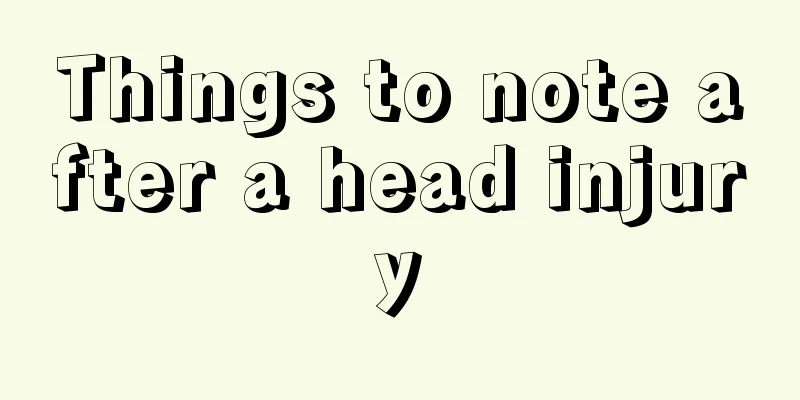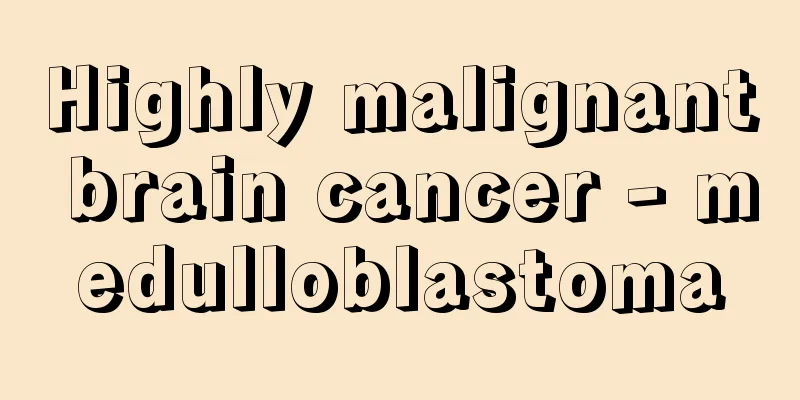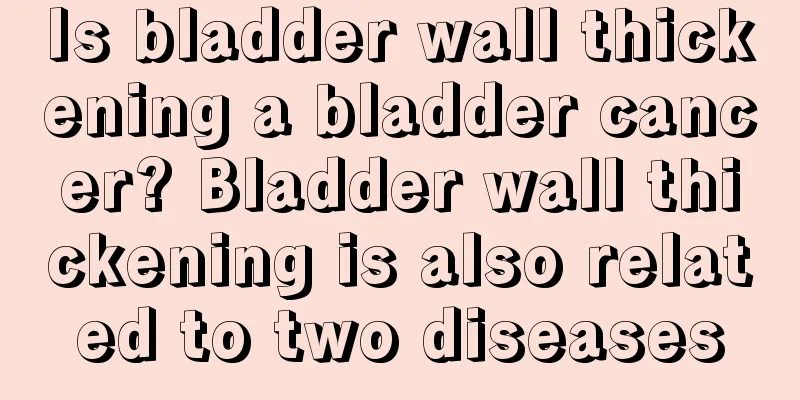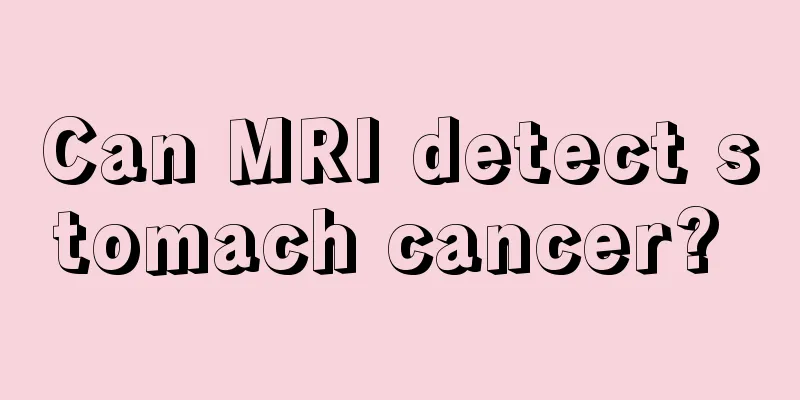Things to note after a head injury

|
We encounter many things in our daily lives, some of which can cause us great harm, like accidentally hitting the head. Many people accidentally hurt their heads, and because they don't have clear precautions, they often don't recover well after the injury, leading to serious consequences. Here are some precautions after a head injury for your reference. I hope it can help you. 1. What should you pay attention to after a head injury? 1. If there is a head injury, it needs to be taken seriously. Observe whether there is nausea, vomiting, drowsiness, coma, etc. If not, it is not a big problem. If there is the above situation, it is necessary to do a head CT scan and other examinations in time to rule out the possibility of intracranial injury. At the same time, you need to have a good rest, do not stay up late and overwork, keep a happy mood, and eat more vegetables and fruits. 2. The key to the current situation is to prevent infection. First of all, pay attention to local cleaning and disinfection, and take oral medications such as cephalosporin for anti-infection treatment. For general injuries, it is recommended to undergo routine tetanus injection within 24 hours. In addition, try to eat less spicy food, avoid drinking alcohol, strengthen nutrition, and pay attention to rest. 2. When should you consider sending your child to the hospital after a head injury? 1. In most cases, the most common injury after a fall is scalp hematoma or bruise, and sometimes scalp laceration. If you have a large scalp laceration and bleeding continues for more than 10 minutes, you need to go to the hospital to check the wound. The scalp has great tension, and scalp lacerations >1cm are not easy to heal naturally, so debridement and suture of the wound are often required. 2. If an infant or young child continues to cry and is difficult to comfort (>30 minutes) after a fall, he or she needs to go to the hospital for examination to rule out intracranial hemorrhage, fractures, etc. 3. If repeated vomiting occurs >= 2 times after a fall, the patient needs to be sent to the hospital for observation, excluding concussion, intracranial hemorrhage, etc. 4. If bleeding or "water" (cerebrospinal fluid) occurs in the nostrils or external auditory canal after a fall, you need to seek medical attention immediately. These may come from within the skull and need to be identified. After a child falls and cries loudly, clear mucus may flow from his nostrils, similar to "water". However, watery liquid continues to flow out after the child stops crying. There is a high possibility of cerebrospinal fluid leakage, indicating intracranial injury and the child needs to be sent to the doctor. 5. Bruises appear around the eye sockets after a fall (commonly known as panda eyes, as shown in the picture), which often indicates bleeding around the eye sockets or intracranial fractures and requires medical attention. 6. If you experience changes in consciousness, abnormal behavior, incoherent speech, disorientation, progressively worsening severe headaches, convulsions, limb paralysis or movement disorders under any circumstances after a fall, you need to be sent to the hospital for diagnosis and treatment immediately. |
<<: The dangers of eyelash curlers
>>: What harm do magnets do to the human body
Recommend
What should I do if there is water accumulation in the refrigerator?
The refrigerator is an indispensable household ap...
Nursing of patients with epilepsy
We all know that the condition of epileptic patie...
Symptoms of pancreatic cancer a few hours before death
Pancreatic cancer patients may experience symptom...
How long can a person with lymphoma live at most
This is the issue that many patients and their fa...
The first symptom of breast cancer is usually a breast lump
Breast cancer is a common cancer in women. The fi...
What to do if there are blue veins on both sides of the forehead
There are blue veins in many parts of the body, w...
How to treat syphilis with integrated Chinese and Western medicine
Syphilis is a sexually transmitted disease that i...
A soft bump appeared after the wound healed
Many people will find a soft lump after the wound...
The fastest way to sober up
Nowadays, people cannot do without drinking or di...
Is Baihui Cream harmful?
Baihui ointment is an ointment commonly used to c...
Can baking soda be used to wash hair?
Using baking soda to wash your hair is also a com...
What are the correct steps for washing your face
We need to wash our faces every day, but many peo...
The benefits of eating strawberries are to clear away heat and fire, and regulate the spleen and stomach
Strawberries are rich in nutrients Strawberries a...
What happens if the gas is not turned off
As we all know, coal gas is the gas obtained by d...
What causes ear stuffiness and tinnitus?
Tinnitus and ear stuffiness will stimulate the in...









